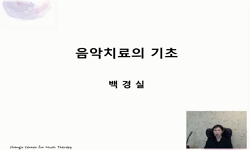Does music save? Pythagoras does suggest this possibility saying that everything is made of numbers. Through its historical survey of the so-called Pythagorean aesthetic tradition in Christianity including the New Testament, Augustine, Boethius, Thoma...
http://chineseinput.net/에서 pinyin(병음)방식으로 중국어를 변환할 수 있습니다.
변환된 중국어를 복사하여 사용하시면 됩니다.
- 中文 을 입력하시려면 zhongwen을 입력하시고 space를누르시면됩니다.
- 北京 을 입력하시려면 beijing을 입력하시고 space를 누르시면 됩니다.
부가정보
다국어 초록 (Multilingual Abstract)
Does music save? Pythagoras does suggest this possibility saying that everything is made of numbers. Through its historical survey of the so-called Pythagorean aesthetic tradition in Christianity including the New Testament, Augustine, Boethius, Thomas Aquinas, Leibniz, Bach, Hegel, Barth, and John Cage, the article offers a historical analysis of music and theodicy with the following three tentative suggestions.
Firstly, in the Pythagorean aesthetics, music functions as a wordless theology. Like the contemporary ‘string theory’ in physics, the Pythagorean aesthetics is based on the conviction that music and the universe share the common isomorphism of vibrating numbers. Second, the theodicy of music is based on the logic of contrastive harmony that partial dissonances enhance the beauty of the overall consonances. Consequently, the existence of evil does not disprove the existence of God, as St. Thomas Aquinas correctly claims, but prove God’s existence on the contrary. For disorder is needed for the existence of order and beauty. Lastly, music is a symbol of eschatological hope. If the universe is in fact God’s perfect work of art, you cannot take something from it or add something to it even if it is not beautifying at the moment. As Aristotle’s definition of a “perfect work of art” shows, “excess and deficiency destroy perfection” (Nicomachean Ethics, 2.6.9). In this sense, human music does not save us but give us eschatological hope for fulfillment and salvation of the world in the future.
다국어 초록 (Multilingual Abstract)
Does music save? Pythagoras does suggest this possibility saying that everything is made of numbers. Through its historical survey of the so-called Pythagorean aesthetic tradition in Christianity including the New Testament, Augustine, Boethius, Thoma...
Does music save? Pythagoras does suggest this possibility saying that everything is made of numbers. Through its historical survey of the so-called Pythagorean aesthetic tradition in Christianity including the New Testament, Augustine, Boethius, Thomas Aquinas, Leibniz, Bach, Hegel, Barth, and John Cage, the article offers a historical analysis of music and theodicy with the following three tentative suggestions.
Firstly, in the Pythagorean aesthetics, music functions as a wordless theology. Like the contemporary ‘string theory’ in physics, the Pythagorean aesthetics is based on the conviction that music and the universe share the common isomorphism of vibrating numbers. Second, the theodicy of music is based on the logic of contrastive harmony that partial dissonances enhance the beauty of the overall consonances. Consequently, the existence of evil does not disprove the existence of God, as St. Thomas Aquinas correctly claims, but prove God’s existence on the contrary. For disorder is needed for the existence of order and beauty. Lastly, music is a symbol of eschatological hope. If the universe is in fact God’s perfect work of art, you cannot take something from it or add something to it even if it is not beautifying at the moment. As Aristotle’s definition of a “perfect work of art” shows, “excess and deficiency destroy perfection” (Nicomachean Ethics, 2.6.9). In this sense, human music does not save us but give us eschatological hope for fulfillment and salvation of the world in the future.
목차 (Table of Contents)
- Ⅰ. 서론
- Ⅱ. 찬송 가운데 태어난 교회
- Ⅲ. 피타고라스 미학
- Ⅳ. 시간의 음악
- Ⅴ. ‘만약 악이 존재한다면, 하나님은 존재한다’
- Ⅰ. 서론
- Ⅱ. 찬송 가운데 태어난 교회
- Ⅲ. 피타고라스 미학
- Ⅳ. 시간의 음악
- Ⅴ. ‘만약 악이 존재한다면, 하나님은 존재한다’
- Ⅵ. 결론 : 희망의 알레고리
- 참고문헌
- Abstract
참고문헌 (Reference)
1 손호현, "캐트린 테너의 대중문화의 신학: 대중문화로 본 하나님, 교회, 성서" 한국신학연구소 (161) : 37-72, 2013
2 손호현, "아름다움과 악 2권: 아우구스티누스의 미학과 신정론" 한들출판사 2009
3 움베르토 에코, "미의 역사" 열린책들 2004
4 Tanner, Kathryn, "Theories of Culture: A New Agenda For Theology" Fortress 1997
5 Blackwell, Albert L, "The Sacred in Music" Westminster John Knox Press 1999
6 Mourelatos, Alexander P. D, "The Pre-Socratics" Anchor Books 1974
7 Butt, John, "The Cambridge Companion to Bach" Cambridge University Press 1997
8 Aquinas, Thomas, "Summa Contra Gentiles, Book Three: Providence, Part I" University of Notre Dame Press 1975
9 Leeuw, Gerardus van der, "Sacred and Profane Beauty: The Holy in Art" Holt, Rinehart and Winston 1963
10 Chamberlain, David S., "Philosophy of Music in the Consolatio of Boethius" 45 (45): 80-97, 1970
1 손호현, "캐트린 테너의 대중문화의 신학: 대중문화로 본 하나님, 교회, 성서" 한국신학연구소 (161) : 37-72, 2013
2 손호현, "아름다움과 악 2권: 아우구스티누스의 미학과 신정론" 한들출판사 2009
3 움베르토 에코, "미의 역사" 열린책들 2004
4 Tanner, Kathryn, "Theories of Culture: A New Agenda For Theology" Fortress 1997
5 Blackwell, Albert L, "The Sacred in Music" Westminster John Knox Press 1999
6 Mourelatos, Alexander P. D, "The Pre-Socratics" Anchor Books 1974
7 Butt, John, "The Cambridge Companion to Bach" Cambridge University Press 1997
8 Aquinas, Thomas, "Summa Contra Gentiles, Book Three: Providence, Part I" University of Notre Dame Press 1975
9 Leeuw, Gerardus van der, "Sacred and Profane Beauty: The Holy in Art" Holt, Rinehart and Winston 1963
10 Chamberlain, David S., "Philosophy of Music in the Consolatio of Boethius" 45 (45): 80-97, 1970
11 Leibniz, G. W., "Philosophical Essays" Hackett 1989
12 McKinnon, James, "Music in early Christian literature" Cambridge University Press 1987
13 Brown, David, "God & Grace of Body" Oxford University Press 2007
14 Barth, Karl, "Dogmatics in Outline" SCM Press 1949
15 Barth, Karl, "Church Dogmatics III.3: The Doctrine of Creation" T & T Clark 1960
16 Mellers, Wilfrid, "Bach and The Dance of God" Travis & Emery 2009
17 Perl, Carl Johann, "Augustine and Music: On the Occasion of the 1600th Anniversary of the Saint" 41 (41): 496-510, 1955
18 O’Connell, Robert J., "Art and the Christian Intelligence in St. Augustine" Harvard University Press 1978
19 Hegel, G. W. F., "Aesthetics: Lectures on Fine Art" Clarendon Press 1975
20 Grant, Robert M., "A Short History of the Interpretation of the Bible" Fortress Press 1984
동일학술지(권/호) 다른 논문
-
A Study on the Method of Communication : ‘Predigt hören’
- 연세대학교 신과대학(연합신학대학원)
- Sung-Min Yoon(윤성민)
- 2013
- KCI등재
-
- 연세대학교 신과대학(연합신학대학원)
- 강성열(Sung-Yul Kang)
- 2013
- KCI등재
-
“그들은 예수를 보고 경배하였다. 그러나 그들은 의심하였다.”
- 연세대학교 신과대학(연합신학대학원)
- 김학철(Hak Chol Kim)
- 2013
- KCI등재
-
- 연세대학교 신과대학(연합신학대학원)
- 배요한(Yo-Han Bae)
- 2013
- KCI등재
분석정보
인용정보 인용지수 설명보기
학술지 이력
| 연월일 | 이력구분 | 이력상세 | 등재구분 |
|---|---|---|---|
| 2022 | 평가예정 | 재인증평가 신청대상 (재인증) | |
| 2019-01-01 | 평가 | 등재학술지 유지 (계속평가) |  |
| 2016-01-01 | 평가 | 등재학술지 유지 (계속평가) |  |
| 2012-01-01 | 평가 | 등재학술지 선정 (등재후보2차) |  |
| 2011-01-01 | 평가 | 등재후보 1차 PASS (등재후보1차) |  |
| 2009-01-01 | 평가 | 등재후보학술지 선정 (신규평가) |  |
학술지 인용정보
| 기준연도 | WOS-KCI 통합IF(2년) | KCIF(2년) | KCIF(3년) |
|---|---|---|---|
| 2016 | 0.34 | 0.34 | 0.38 |
| KCIF(4년) | KCIF(5년) | 중심성지수(3년) | 즉시성지수 |
| 0.36 | 0.33 | 0.816 | 0.11 |




 DBpia
DBpia






